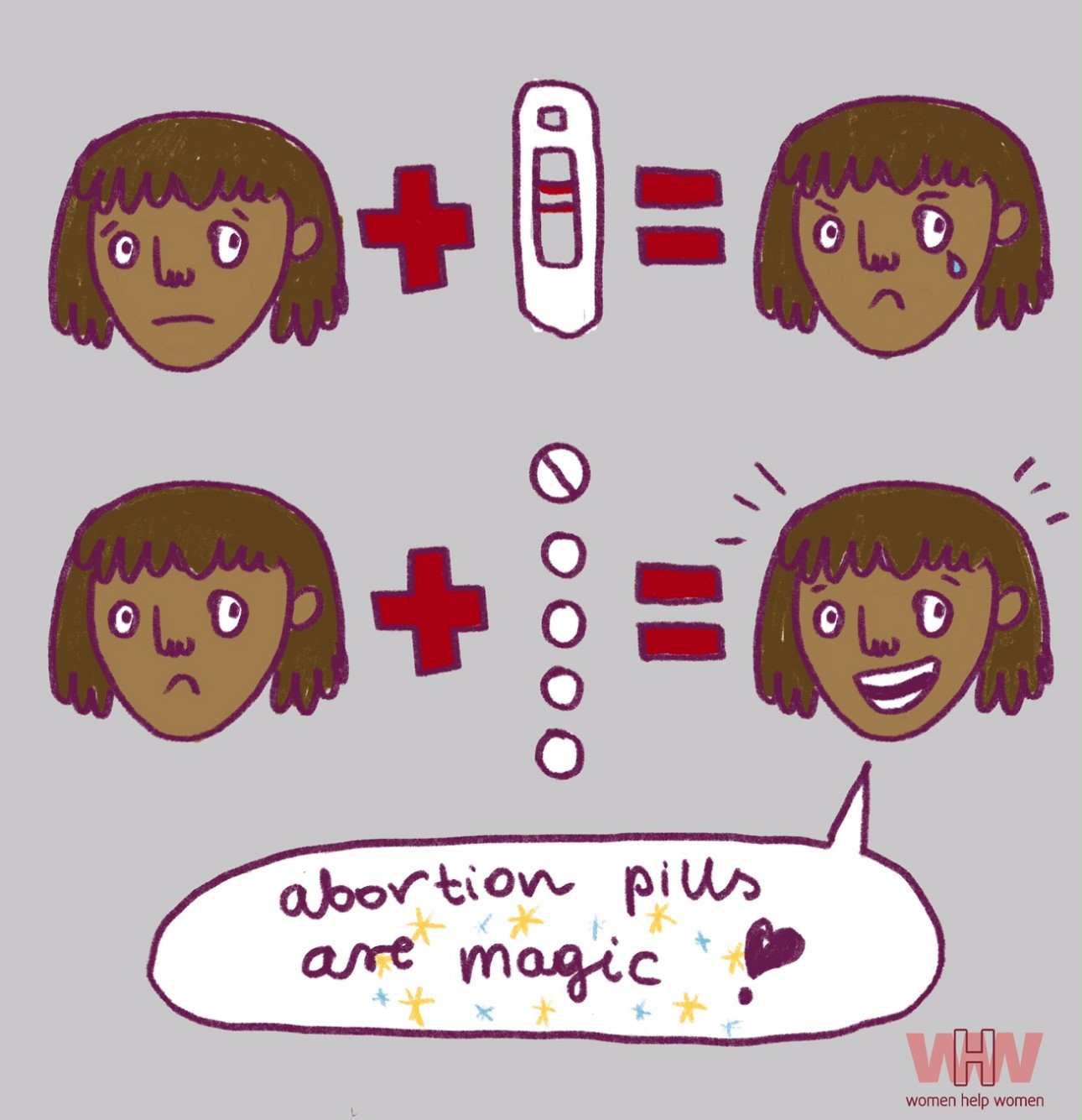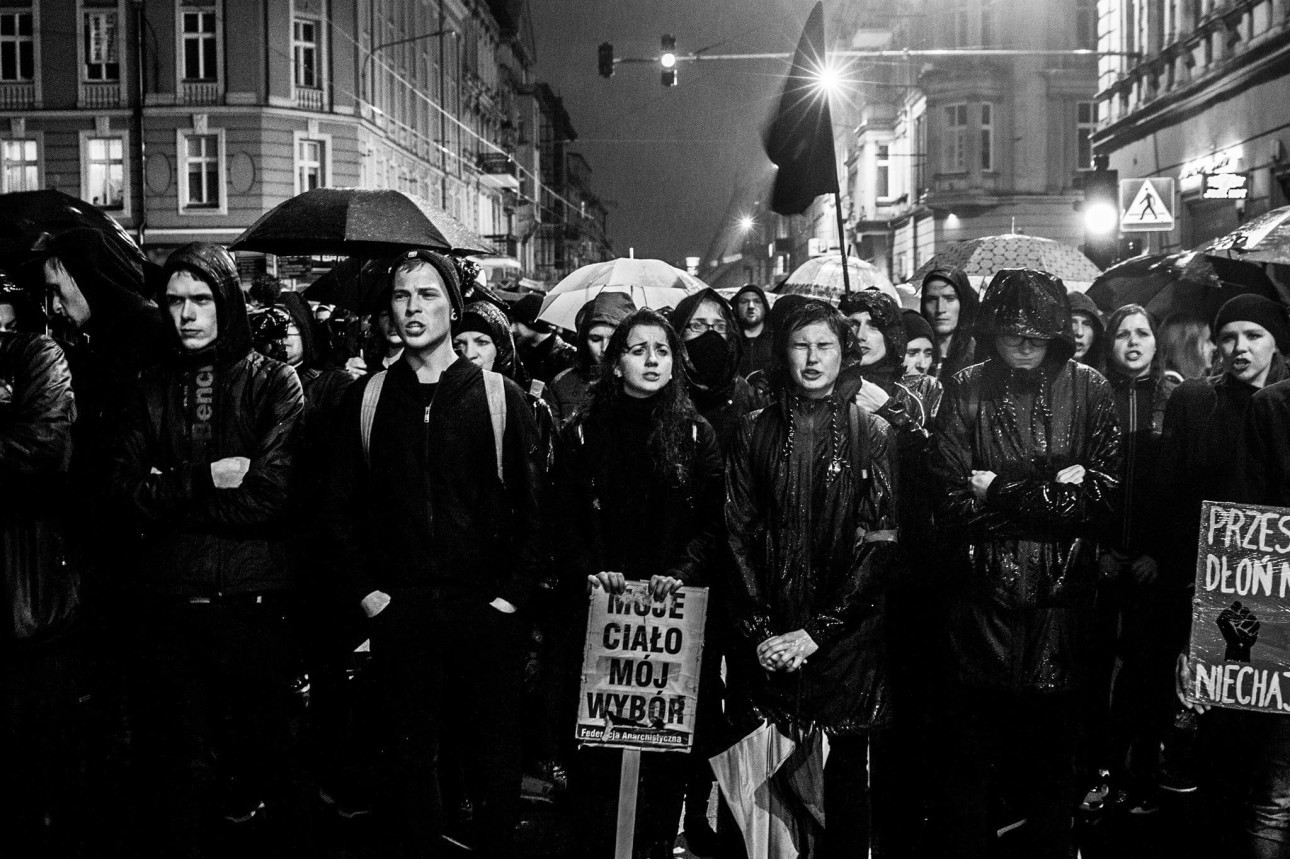
How Feminists and Anarchists Defy Polish Anti-Abortion Laws
In Poland, abortion has been almost completely prohibited since 2020. Nevertheless, a network of anarchists and other feminists strives to ensure that those who need abortions can access them, legally or not. Now that abortion has been prohibited throughout many of the United States, as well, people in North America stand to gain from the experience of those who have already been confronting this situation for years. To learn how Polish activists use direct action and mutual aid to keep abortion accessible, we interviewed participants in this network.
Maintaining widespread access to abortion—legal or not—is crucial to saving lives and preserving the autonomy of those targeted by patriarchal power structures. It is also an essential part of the struggle to legalize abortion. As we argued in June, after the Supreme Court struck down Roe v. Wade,
The Roe v. Wade decision did not take place because a majority of the US population supported abortion access in 1973. Rather, in view of organizing efforts such as the Jane collective, which provided an estimated 11,000 illegal abortions, we can conclude that the ruling was a response to the intensity with which a particular segment of the population was fighting for abortion access, and to their success in calling the state’s monopoly on power into question by continuing to make abortion available despite the efforts of police and judges.
We are once again in the era that the Jane collective confronted—this time, with abortion pills as an option. As people in Poland have demonstrated, it is possible to maintain widespread access to abortion regardless of the laws on the books.
If you want to support abortion access in Poland, one option is to donate to Ciocia Basia. In the United States, you can obtain abortion pills here and information about how to use them here.
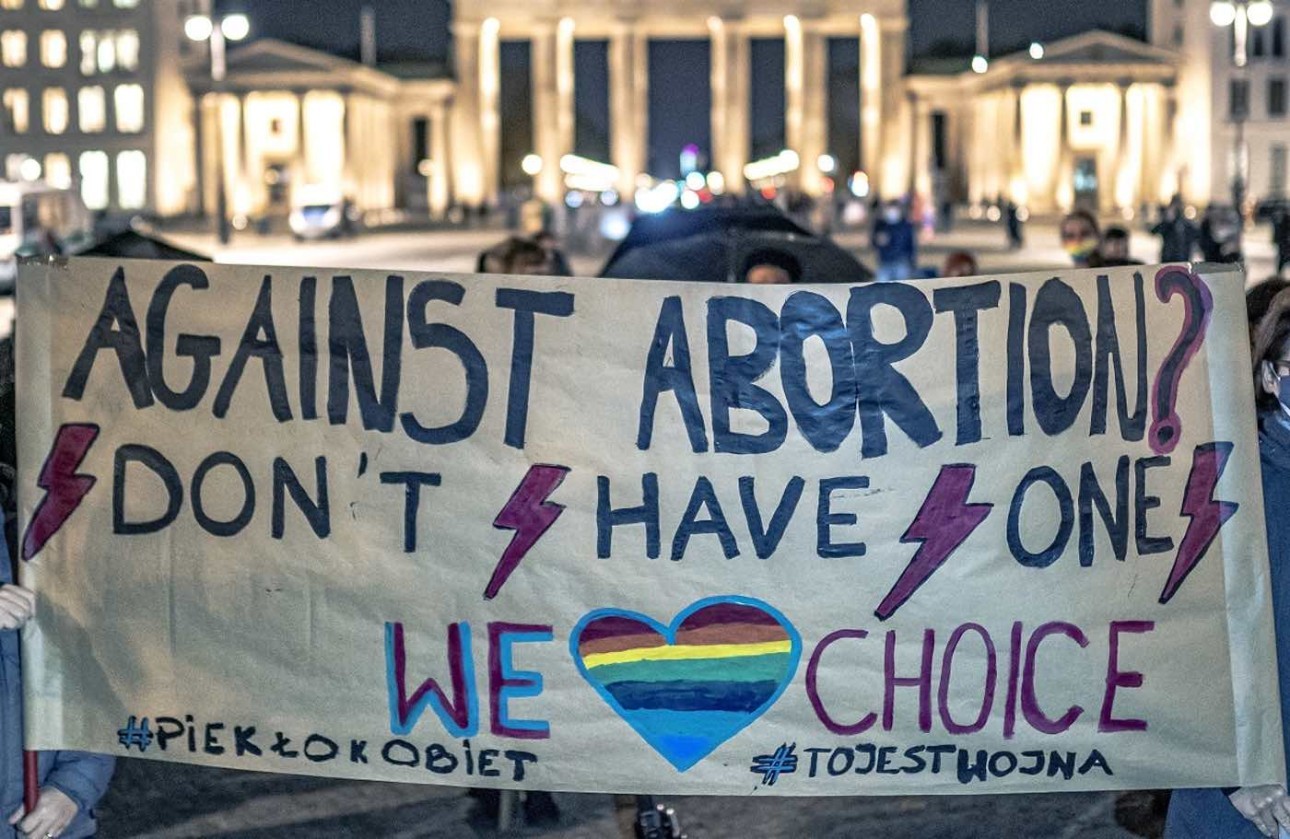
Abortion without Borders
In Poland, widely posted stickers display a phone number that connects people seeking abortions to the helpline of a network of organizations collectively known as Abortion Without Borders (AWB). With Poland’s abortion laws being among the most repressive in Europe, this network demonstrates the power of international solidarity in defending reproductive freedom. The groups that comprise Abortion Without Borders include Abortion Dream Team (ADT) and Kobiety W Sieci in Poland, Ciocia Basia in Germany, Abortion Network Amsterdam and Women Help Women in the Netherlands, and Abortion Support Network in the United Kingdom.
Asia, an anarchist activist from Poland who relocated to Amsterdam to work with Women Help Women, recalls how these groups met in 2018 on the initiative of one person from the United Kingdom who saw them all doing similar work separately and suggested that they join forces. “The idea was to figure out ways to get later abortions, especially for people living in places where there was no easy access to abortion services, and [to] spread information,” says Asia.
The Abortion Without Borders helpline is staffed by Kobiety W Sieci, who counsel callers on their options and connect them with other groups in the network according to their needs. If someone in Poland wants to travel abroad to terminate a pregnancy, counselors refer them to Ciocia Basia, a queer feminist grassroots collective in Berlin dedicated to building support structures for people coming to Berlin for abortion access. Those who prefer to opt for a pharmacological abortion at home can order the necessary pills from Women Help Women’s global telehealth service. Asia emphasizes that it is important for activists and counselors to use precise language around this because, while Polish law does not criminalize those who terminate their pregnancies, it has become increasingly dangerous to help someone obtain an abortion in Poland.
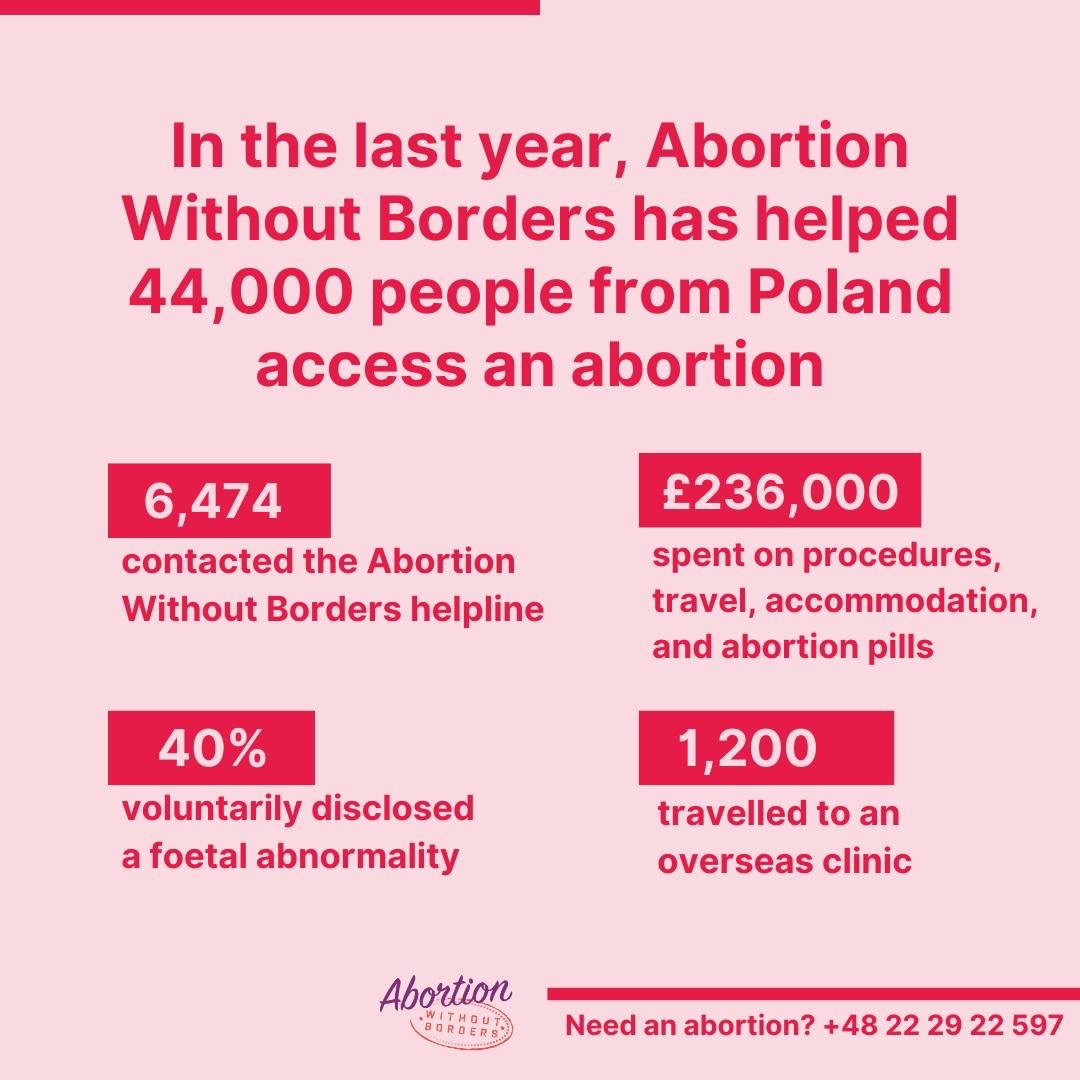
Abortion law has a complicated history in this traditionally Roman Catholic country. With the fall of communism at the opening of the 1990s, the Church began to push for new legislation to restrict abortion access. Since 1932, the procedure had been legal in cases of rape and threat to maternal health, with a 1956 law expanding legal justifications for abortion to include “difficult living conditions.” The newly elected non-communist government passed legislation in 1993 that disqualified social and financial factors as a justification, leaving rape or incest, threat to maternal health, and fetal impairment as the only cases in which the procedure was legal. In April 2016, Polish pro-life organizations proposed a bill to ban abortion in all cases except where the pregnant person’s life was in danger, which passed in the Sejm (one of the houses of Poland’s parliament) the following September. The other house of the Polish parliament voted to reject the law the next month, after tens of thousands of people raged against the proposed legislation in decentralized demonstrations collectively known as the “Czarny Protest” (“Black Protest”) in cities across Poland.
On October 22, 2020, however, the Constitutional Tribunal effectively banned abortion almost entirely, ruling that terminating a pregnancy because of fetal defect was unconstitutional. This sparked mass demonstrations in which over 400,000 people took to the streets to protest the decision and the ruling right-wing Law and Justice party (PiS). According to an official tally from the Ministry of Health, 1074 out of the 1110 legal abortions performed in Poland the year before the ruling were obtained due to fetal impairment or life-threatening disease. The number of legal terminations, however, offers little indication of how many Polish people terminate a pregnancy in a given year. Tens of thousands do so every year by ordering abortion pills through the mail or traveling outside the country to undergo procedural abortions in clinics.
Because of the obstacles to obtaining the procedure legally, people in Poland have largely defaulted to these options even in cases where they have a legally recognized right to have an abortion. For example, to terminate a pregnancy that is the result of a crime, a pregnant person needs a certified letter from a public prosecutor confirming that they were raped. Such bureaucratic obstacles can make it impossible to access abortion services before one is twelve weeks pregnant, after which abortion is prohibited under any circumstances.

The collectives participating in the Abortion Without Borders network noticed an immediate increase of interest in the services they provide following the ruling of October 2020. “We could absolutely feel the impact of the decision,” says Asia. “This was really devastating on one hand, but on the other hand it also brought incredible amounts of solidarity and grassroots organizing, and organizing that went beyond grassroots… it really affected the whole society. Also, there were huge demonstrations and protests that were, I would say, counterproductive to what is the hope of people in power in Poland.”
Adrianna of Abortion Dream Team says the 2016 protests against the proposed abortion ban were what inspired her to focus on the issue. She comes from a small town in Poland where she says the word “abortion” didn’t exist in her family. “I didn’t know such a thing existed until my early twenties, and then I think I was really against abortion,” she says. “Then, step by step, becoming a feminist, I had to deal with this abortion issue. I realized it was about having control over your body. It really was a long journey from being a person who was against abortion to being a person who is totally 100% pro-abortion right now.”
Today, Adrianna is part of a group of twelve people who support ADT by answering questions on social media from people seeking abortions. “In Poland, because of this abortion stigma, it’s very important to just spread the news,” she says, “to let people know they will not be punished for taking abortion pills or going outside the country to get a procedural abortion.”
ADT’s mission is to change the narrative on abortion, destigmatizing and dispelling myths about the procedure while spreading information about self-managed abortion, which involves terminating a pregnancy with the medicines Mifepristone and Misoprostol and does not require medical supervision. “The abortion pills give you power,” says Adrianna. “In 1993, when the abortion law was established, no one knew the pills would become so accessible and used every day.”
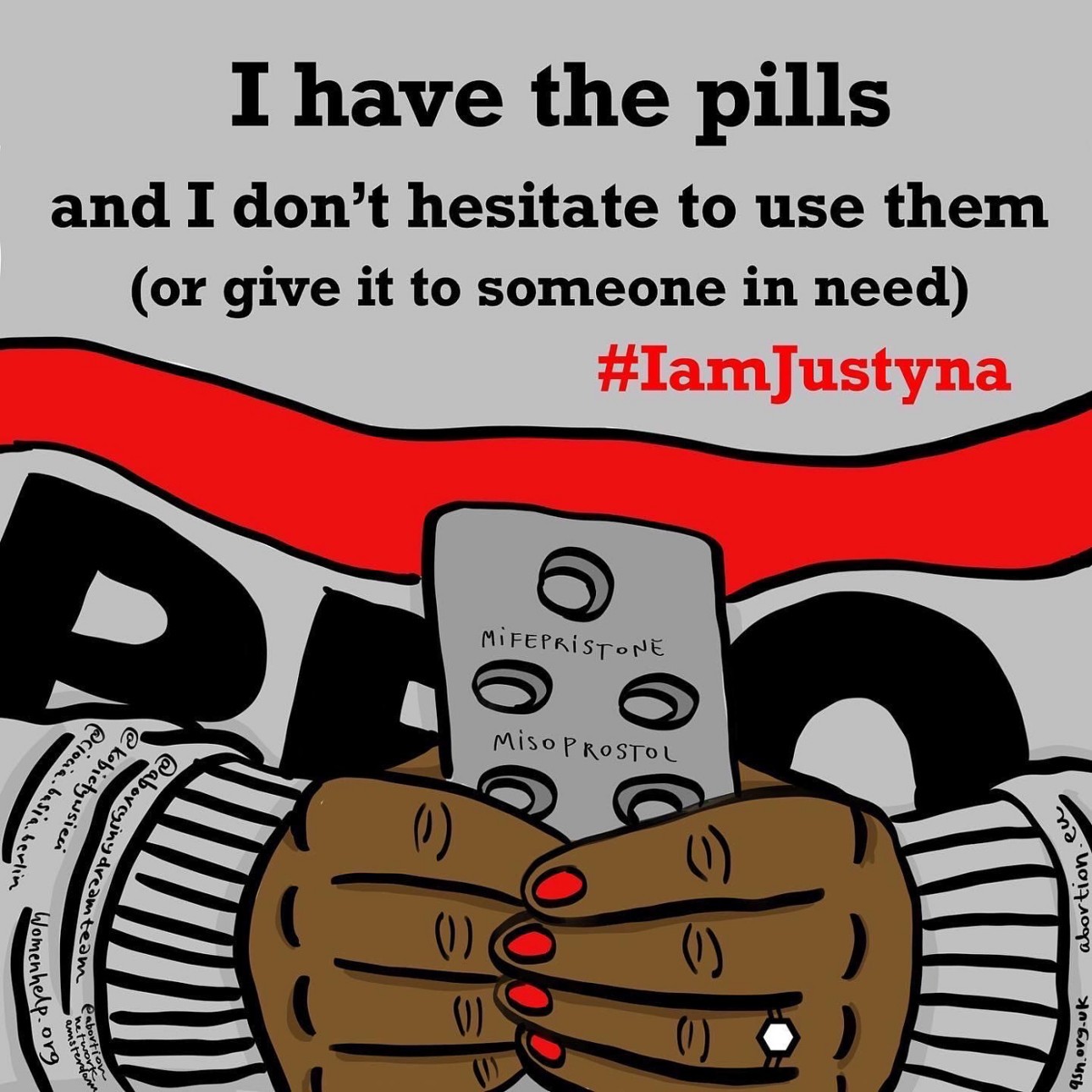
People can contact ADT via email, Facebook Messenger, or Instagram. First, volunteers inquire if the person has taken a test to be sure they are pregnant, then ask if they are sure they want to have an abortion. Once they have established that a person wants to order abortion pills, ADT volunteers instruct them on how to order from Women Help Women in the Netherlands and share the link to that organization’s order form. “People ask questions like if it hurts, how long does it last, how much it costs,” Adrianna says.
Rather than purchasing these pills, the person ordering them makes a donation of 75 euros, though they can give more if they are able. “If you don’t have the money, as many people under 18 who write us don’t, we can ask the organization to waive the donation,” says Adrianna. “For people in Poland, it’s a steep amount of money. Many of the women already have kids and can’t afford to donate.” The pills, which take a maximum of 20 days to arrive, are packed in very discreet packaging, with only the recipient’s name and address, as they travel across the border. ADT provides instructions via email and social media regarding how to take them, and volunteers are available to advise and answer questions throughout the process. The person taking the pills can also call the Abortion Without Borders helpline to receive support from the Kobiety W Sieci team.
ADT also stays in touch after the pharmacological abortion is over. “Usually, people want to go to the doctor to make sure everything is okay,” says Adrianna. “But the vagina is such a great organ that it will clear itself without even checking.” She says people often write to ADT afterward to thank them and express how happy they are. “I think the most important thing is, they don’t want to feel that they are alone. The stigma of abortion is such a big thing in Poland, they usually cannot tell even their partners or their friends. So I think the most important role we have is that we are giving them support. We are with you, you are not alone, and this is your decision. This is a good decision.”
Activists in the AWB network agree that the first thing that changed in the wake of the Poland’s near-total abortion ban was that an atmosphere of fear took hold among doctors, nurses, and patients. Since the ban took effect in January 2012, at least three women have died of sepsis in Polish hospitals as a result of doctors refusing to perform a life-saving abortion or caesarean section. Human-rights activists blame these deaths on the chilling effect that the abortion law has had on medical professionals, scaring them into refusing essential care to patients.
“This is the most terrifying thing that I have noticed,” says Adrianna, who recalls hearing from one person who was considering terminating their pregnancy out of fear that they might not receive necessary care at a hospital if something went wrong.
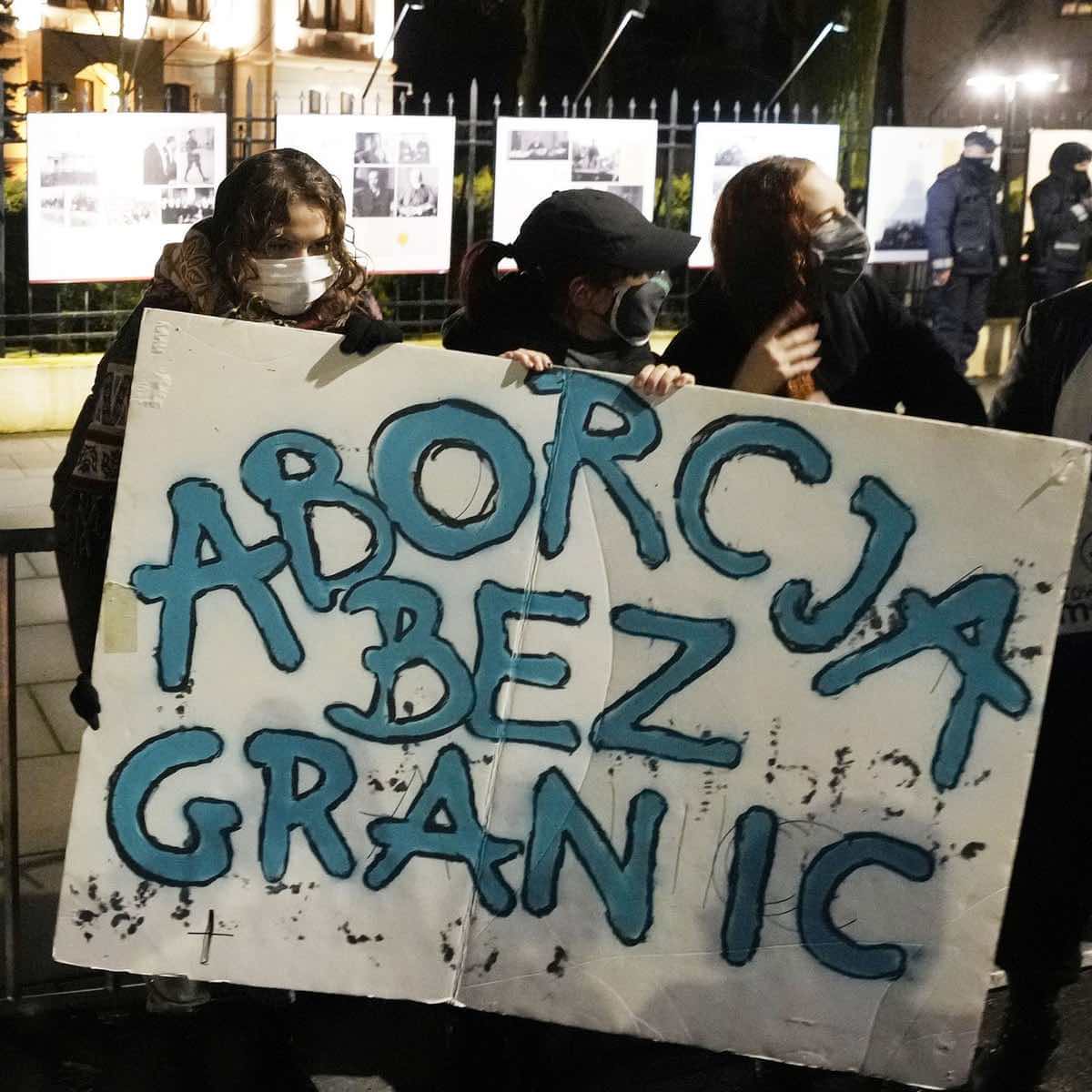
Asia of Women Help Women says the most heartbreaking effect of this atmosphere of fear is that many people taking abortion pills are concerned that they might not get adequate medical support in the event of complications, and that doctors might treat them as if they have committed a crime. “Someone who is taking abortion pills is not breaking the law, but doctors don’t know it, so they feel like they have to report someone. There’s a strong feeling of insecurity on all levels. A lot of people don’t seek medical treatment because of this fear.”
Coming from Poland’s anarchist punk scene and queer feminist movement, Asia moved to Amsterdam to work with Women Help Women after she discovered that there were limitations on what kind of support activists located in Poland could provide to those seeking abortions, due to the legal restrictions. “For me, moving out was an opportunity to get closer to more practical help,” she says.
Unlike the more informal collectives within AWB, Women Help Women is a formal organization active in multiple locations around the world. “We are not a huge organization, and we focus on the countries where there is not access to safe abortion services,” says Asia. “For the countries where there are local abortion services, we strongly encourage people to use those services, so we can focus on those who don’t have any options.”
Women Help Women operates with a horizontal organizational culture, which Asia says requires “constant conversation” about what it means to organize horizontally. “We try to change the narrative and promote a supportive, non-judgmental, normalizing-of-abortion approach,” she says. “I would say it’s mostly local groups that focus on this and we are doing our best to catch up with them and to implement their approach in how we communicate and what kind of message we want to bring to the outside world.”
The collectives in the network share the goal of both de-criminalizing and de-medicalizing abortion. “I would like us to have more local groups who are willing to support each other,” says Asia, “and who question the fact that abortion is so much in the hands of doctors and that the most optimistic view is to have it legalized and in the clinics. This doesn’t have to be the way, especially with first-trimester abortions, with abortion pills that can be extremely cheap and accessible.”
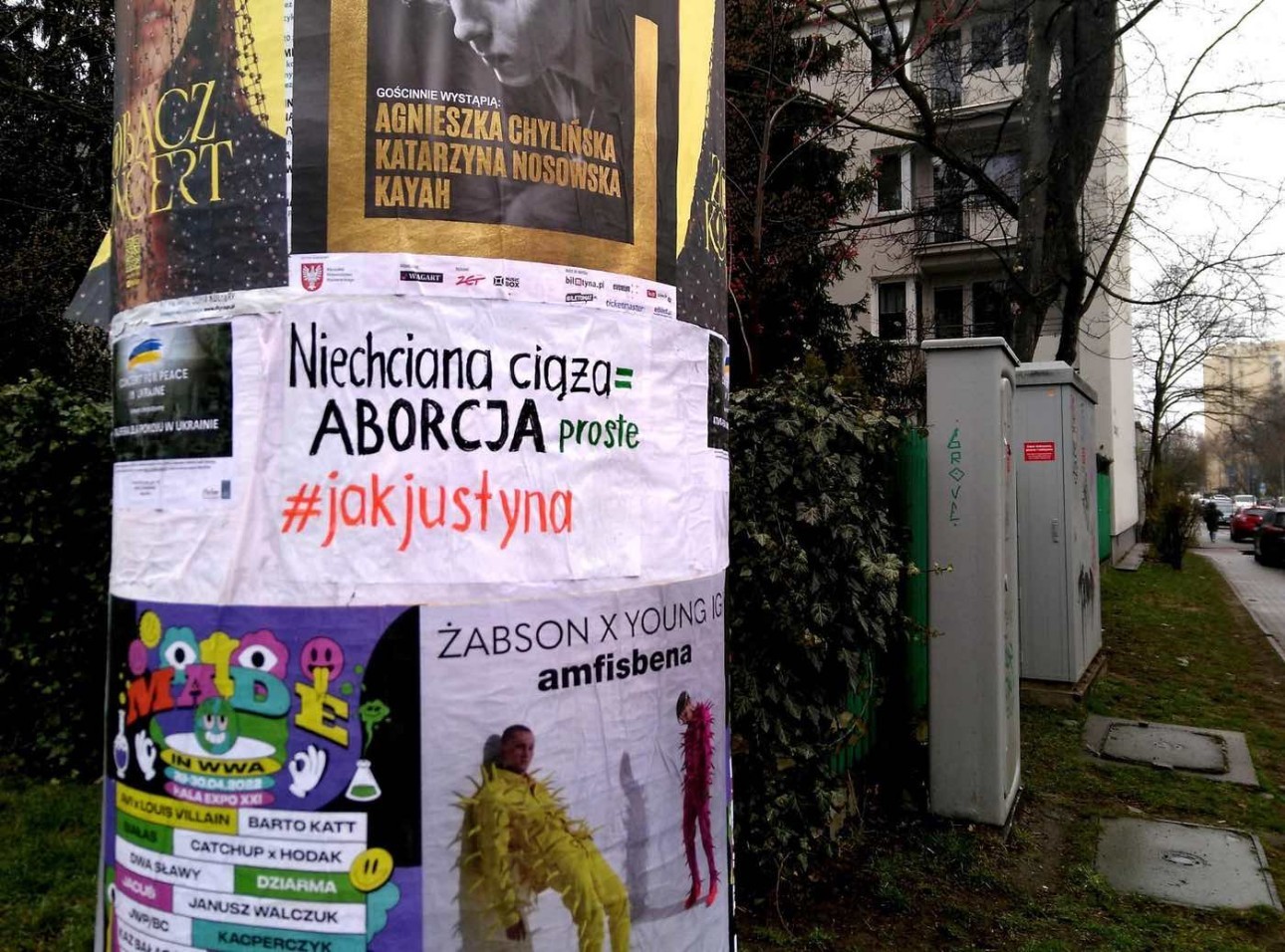
One of the objectives essential to Abortion Dream Team’s mission is to de-medicalize the procedure and put the power back into the hands of the people. “Abortion pills are something that you can do on your own,” says Adrianna. “You can decide when you want to have this abortion, how to do it, with whom you want to do it. You don’t have to go to the doctor. Even the World Health Organization guidelines say that you can do your abortion at home. Like every area of life, it’s sometimes taken by politicians or men in power.”
“For me, this is actually the feminist revolution,” says Asia. She explains that the idea of the procedure as something ethically controversial and prohibitively complicated is a construct that has nothing to do with reality. “It is a very simple procedure that 99% of people can have at home themselves and not really have a need to see a doctor afterwards. Complications happen in less than 1% [of pharmaceutical abortions]—so do we really, as a society, need to have so many structures around it? Do we really need to have so much legal conversation about something that is so easy? When you think about it, you realize that it’s not really about safety, because the safety of it is proven. It’s about control and keeping this atmosphere of dependency.” Asia and other activists at Women Help Women reflect on how the medicalization of abortion has shaped our reproductive lives. “It’s not only about stigma, it’s not only about the law, but how our pharmaceutical system is working and how the healthcare systems are designed. It all goes hand in hand, and it all limits our freedom.”
In Germany, one of the countries where AWB helps people from Poland to access abortion services, the procedure is controlled by the state. While it is illegal to terminate a pregnancy in Germany, the law makes exceptions for medically necessary abortions and cases where the pregnancy is the result of rape. It also does not prosecute abortions in the first trimester, as long as people first submit to mandatory counseling with a state-licensed social worker (which laws require to be biased toward dissuading the person from having abortion), followed by a compulsory three-day waiting period. Abortions in Germany can be surgical or pharmacological, but must always be performed in a clinic—one cannot simply order the pills and take them at home.
Ciocia Basia, the collective that supports people from Poland who choose to obtain abortions in Berlin, has always been small, informal, and self-organized, according to one member. It was initiated in 2015 by two people, one German and one Polish, who had the idea to bring people from Poland who were seeking abortions to the neighboring countries. The organizers started to make connections and formed their first partnership with a clinic that had affordable fees. After they began to receive phone calls from people in Poland seeking assistance, they decided to name the collective Ciocia Basia, which means “Auntie Basia” in Polish. Basia is a very common name in Poland, so it is inconspicuous for people to save the group’s number in their phones.
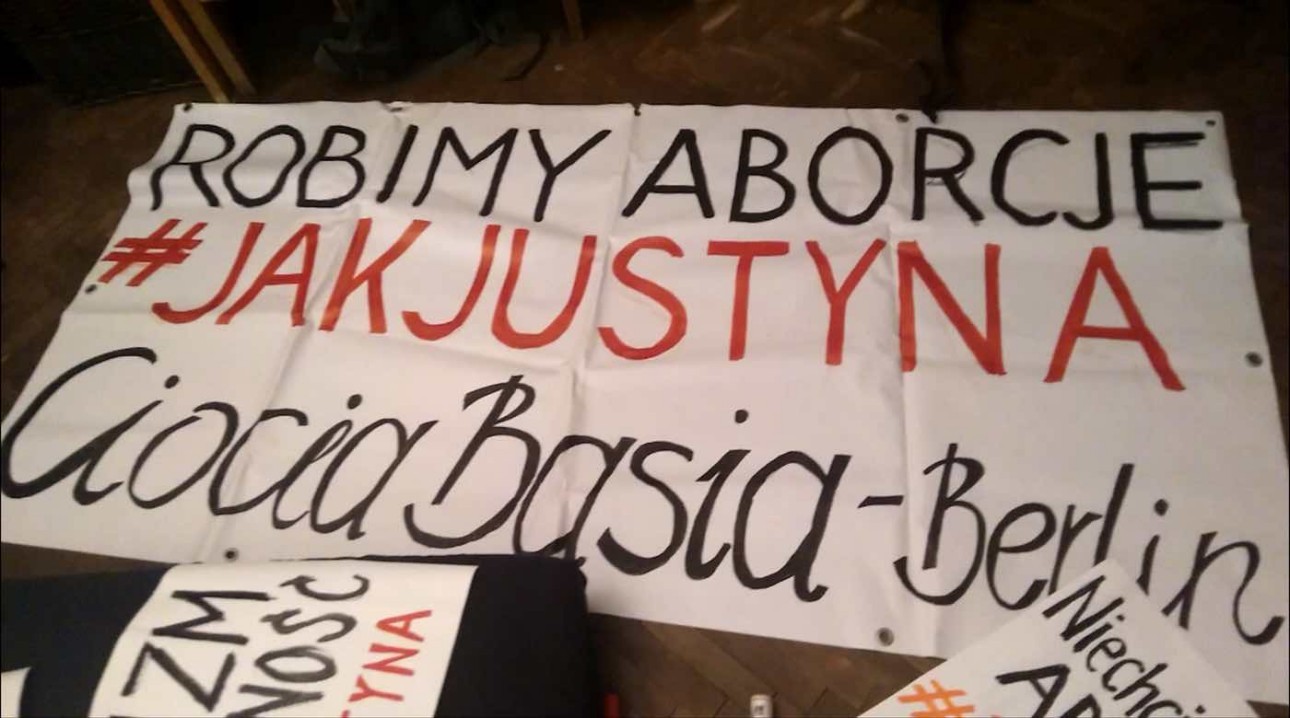
People in Poland seeking an abortion sometimes find Ciocia Basia through an article or interview in the course of searching for resources, or else through pro-choice groups in Poland, which distribute propaganda in the streets and media. One collective member reports that they try to be visible, going to demonstrations in Poland and passing out stickers and fliers. Every week, two members take regular shifts answering the phone number and email account via which people contact them. Once a person reaches out, members help them to decide whether coming to Germany for the procedure is an option. Ordering pills for a pharmaceutical abortion costs less money, so if that seems like a better option for the person, Ciocia Basia refers them to the website for Women Help Women and stays involved in case they have questions.
“The first thing we establish is if they want to come to Germany,” explains one member of Ciocia Basia. If the answer is yes, they put the person in contact with a social worker to arrange a meeting for the mandatory counseling. Because of the COVID pandemic, this can currently be done online or over the phone, which works better for most people—otherwise, the three-day waiting period between the consultation and the procedure would mean they had to either come to Germany twice or stay four nights there. Ciocia Basia also puts people in contact with the clinic and helps them navigate making the appointment, finding the clinic, getting reimbursement from their insurance provider, and preparing for the procedure.
Sometimes, though not often, the collective pays for and arranges the person’s travel. “It depends on what the person needs, which is what we try to find out.”
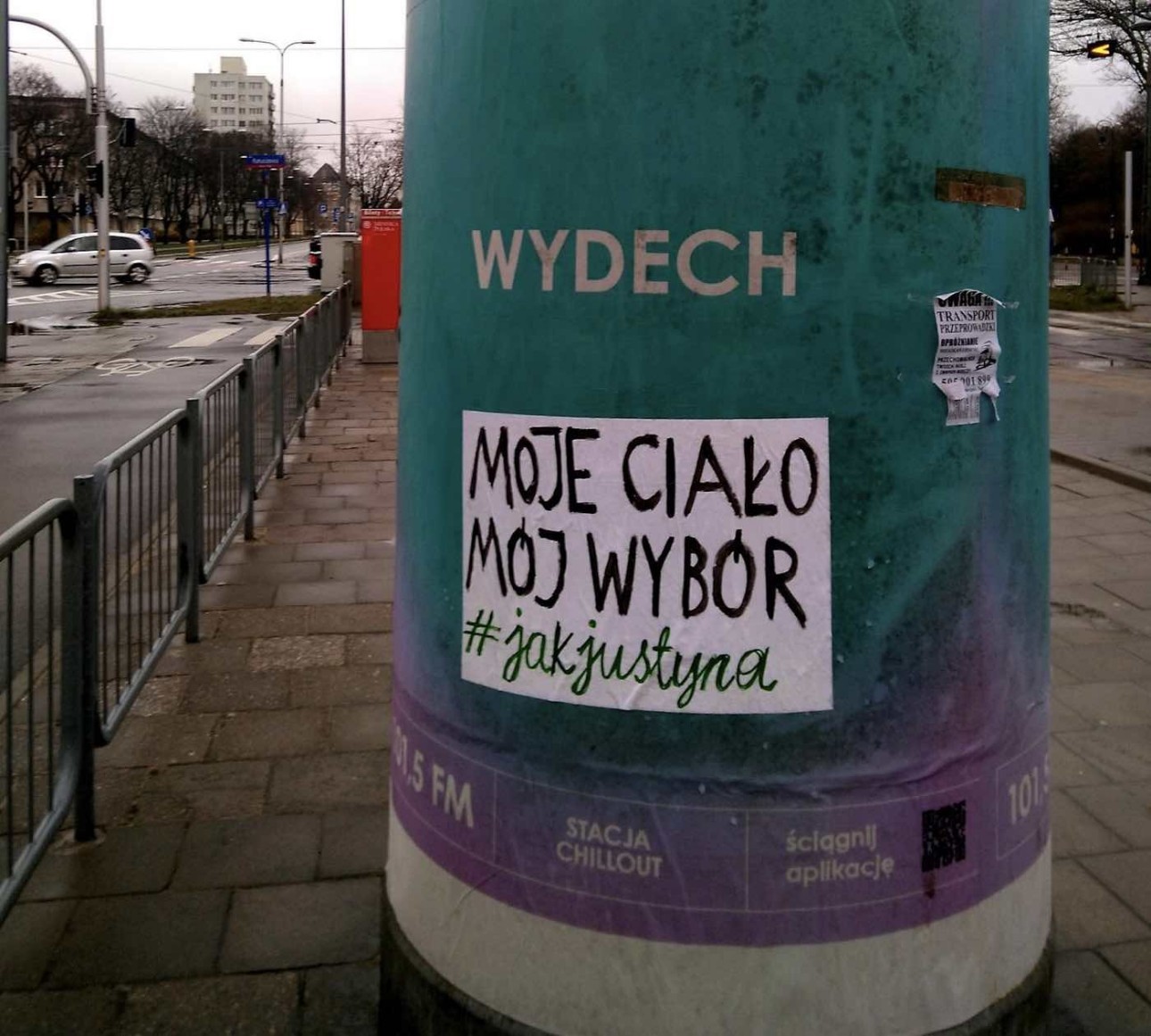
The collective works with a network of people living in Berlin who host those coming to the city for an abortion. Collective members meet people at the train station and transport them to the place they will be staying, and from there to the clinic. According to one member, the activists don’t host people themselves because it is too emotionally draining to be doing this work and be with the people the whole time, which is why the network of hosts are people with whom they are in touch but who are not part of the collective. When someone needs a place to stay, members of the collective email this pool of volunteers to see who can host, explaining how many people will be coming and how many nights they need to stay, and hosts write back to answer whether they have room available. In some cases, Ciocia Basia pays for a hostel or simply directs people to hostels. The group also partners with volunteer translators to support those who don’t speak German.
“In Berlin, people love organizing parties to raise funds and often approach us saying they want to do that for us, so we don’t have to organize it by ourselves,” a member explains. “This work requires having money, having access to money. You need many people so you don’t get burned out. This is emotional work.”
One activist who moved from Poland to work with Ciocia Basia and was in Berlin when the 2020 court decision imposed further restraints on abortion access recalls noticing a change immediately. Whereas previously, most of the emails and calls the collective received had been about unwanted pregnancies, after the ruling, about half of those requests for support regarded wanted pregnancies in which there was a possibility of fetal defect, and the pregnant person wanted to plan for an abortion in case test results showed an impairment. “In Poland, you don’t always have access to the information you need about your pregnancy. If there’s a possibility of abnormality, the doctors have strategies to delay you in getting the test results until it’s too late to terminate.”
While a person still cannot be prosecuted for having an abortion in Poland, anyone who supports someone in obtaining one can, and the authorities appear to be sending a message to those who would do so. In April 2022, Abortion Dream Team co-founder Justyna Wydrzyńska became the first activist in Europe to face criminal charges for aiding an abortion. Justyna, who has been supporting people seeking abortions for fifteen years, now faces the possibility of three years in prison for sending a packet of abortion pills she had kept for her personal use to a woman who said her abusive husband was preventing her from leaving Poland to get the procedure. The woman eventually had a miscarriage due to stress after her husband found the package of pills and reported it to the police. With Justyna’s trial having been postponed for the second time to January 2023, abortion-rights advocates at ADT and throughout Poland hope to see all the charges dropped, knowing that a conviction in this case would set a dangerous precedent.
“We are very afraid of what will happen because I think they want to prove that you cannot help with abortion,” says Adrianna.
In June, Polish Health Minister Adam Niedzielski signed an ordinance allowing health information on patients to be saved in a central database by the federal government, including data on pregnancies. While the health ministry insists the data will only be available to medical professionals, women’s rights advocates have expressed concerns that the government will share this information with police and prosecutors, potentially making people afraid to seek care from the state medical system during their pregnancies. Asia says she isn’t sure whether the government actually has a plan for how to use this information or if instilling fear is the only objective. “I feel it’s a great tool of control and a great tool of building the atmosphere of fear, and it already works. People are confused, people are scared. They don’t know who and how to trust, and I absolutely understand this.”
Despite these new developments and their ominous effects, pro-abortion activists in Poland remain encouraged by many people’s response to the ban. “For me, what was really beautiful and mind-blowing was the solidarity organizing that happened after the court ruling,” says Asia, “and people who started to declare that they did have abortions, they are willing to support others, they know how to do it. I feel like we need more and more of this, because it has such a power of destigmatizing the procedure itself and changing that narrative around it.”
Adrianna says creating networks is critical to this struggle. “I think in groups, we have power. You are not fighting alone. Even for me as an activist, I feel safer and that I have more possibilities when I’m in this network.”
Asked what the next step should be towards making abortion accessible to all in Poland, a member of Ciocia Basia says, “The next step has to come soon; it is about the law change. However, the resources the movement has or needs will be still utilized—supporting people in late pregnancies, financial help, providing information, educating, etc.—we will not disappear from one day to another. And some of us will still have to face repression. In patriarchal, racist, and capitalistic society, you have to rest and recharge regularly, but you can’t quit the resistance structures.”
“I’m really impressed and grateful for the grassroots organizing that is happening around this topic, and I would love this to be spreading,” says Asia. “Everyone can do it. It’s so easy. All the information is there on the internet. Everyone can support someone with an unwanted pregnancy and how to terminate it. I really hope that people are going to take this opportunity to build more support networks for each other.”
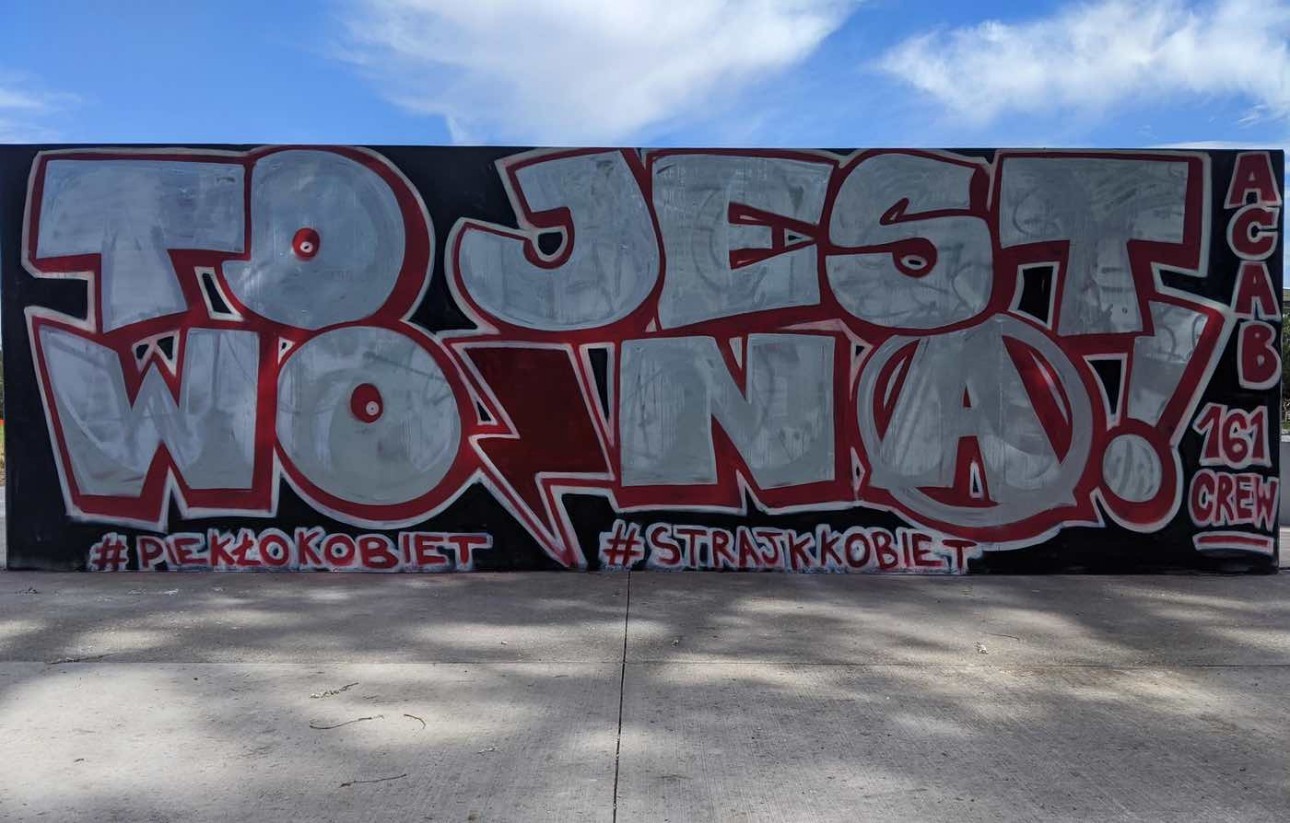
Further Reading
– To Defend Abortion Access, Take the Offensive—Strategizing for direct action to preserve abortion access in the United States
– Doing What State and Market Cannot: The Visible Hand—How a mutual aid network served tens of thousands in Poland during the first phase of the COVID-19 pandemic
– Solidarity in an Age of War and Displacement—How anarchists have confronted the weaponization of refugees on the Poland-Belarus border
